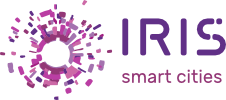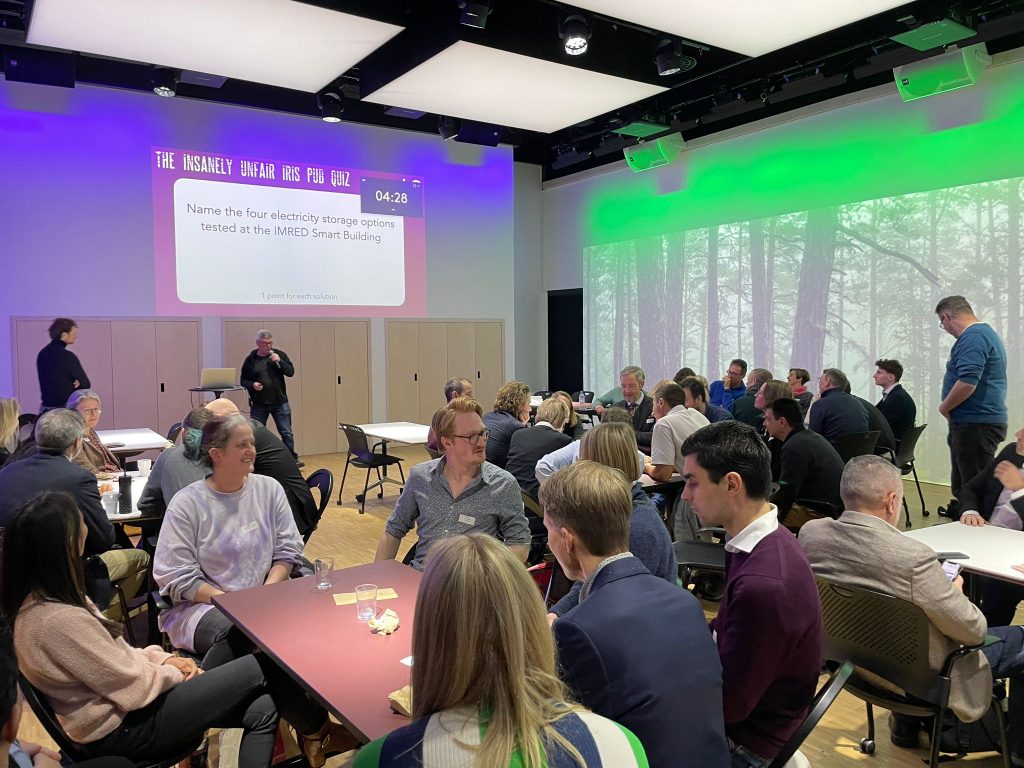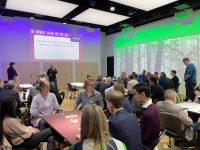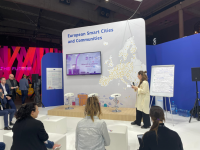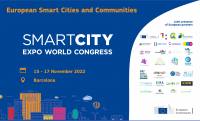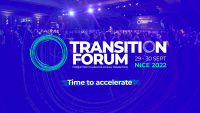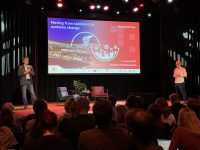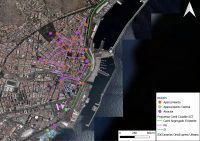The IRIS Magazine: project highlights from the past five years
Over five years ago, in 2017, a large group of people from all over Europe embarked…
The IRIS tribe bids farewell but the solutions, lessons, and friendships live on
On the 8 and 9 March, the IRIS Smart Cities project partners and friends gathered at…
Minecraft as a tool for dialogue and urban planning
The City of Gothenburg showed how using digital platforms for dialogue with citizens could benefit urban…
Latest News
The IRIS Magazine: project highlights from the past five years
Over five years ago, in 2017, a large group of people from all over Europe embarked upon an innovation journey to make their cities more sustainable and improve the quality…
The IRIS tribe bids farewell but the solutions, lessons, and friendships live on
On the 8 and 9 March, the IRIS Smart Cities project partners and friends gathered at Johanneberg Science park in Gothenburg Sweden for a final celebration of the five and…
Minecraft as a tool for dialogue and urban planning
The City of Gothenburg showed how using digital platforms for dialogue with citizens could benefit urban planning by using Minecraft – a popular video game that allows players to build…
European Smart Cities and Communities take the stage at Smart City Expo World Congress 2022
The IRIS Smart Cities project is thrilled to announce its participation, jointly with 29 European initiatives and projects under the umbrella of the European Commission, to the Smart City Expo…
Entering the final phase: IRIS project meeting in Métropole Nice Côte d’Azur
Last month, IRIS Smart Cities partners visited lighthouse city Métropole Nice Côte d’Azur in one of the last in person meetings of project to discuss actions for the final phase as…
Transition Forum in Nice: an opportunity to accelerate the green transition
European stakeholders from several sectors, including energy, mobility, food, housing as well as several IRIS Smart Cities partners will gather at the Transition Forum in Nice on 29-30th September to…
Smart Cities investigate climate friendly success stories through a different lens
European smart city stakeholders and representatives gathered in Utrecht on the 1st-2nd of June to understand what the hidden factors behind the successful implantation of climate friendly solutions.
IRIS Case Studies – Santa Cruz de Tenerife, Canary Islands
Nothing strikes fear in commuters more than the thought of spending the morning commute stuck in a traffic jam. Spare a thought then for the commuters of Sant Cruz de…
Video and presentations from the IRIS Webinar on Urban Data Platforms
At a Webinar held on May 17, 2022, IRIS Lighthouse Cities Utrecht, Métropole Nice Côte d’Azur, and Gothenburg presented how they use the local City Innovation Platforms (CIP) in the…
IRIS Webinar: Urban Data Platforms – Experiences from the IRIS LH Cities
In the upcoming webinar, the three IRIS Lighthouse Cities Utrecht, Métropole Nice Côte d’Azur, and Gothenburg will present through concrete use cases how they use the local City Innovation Platforms…
